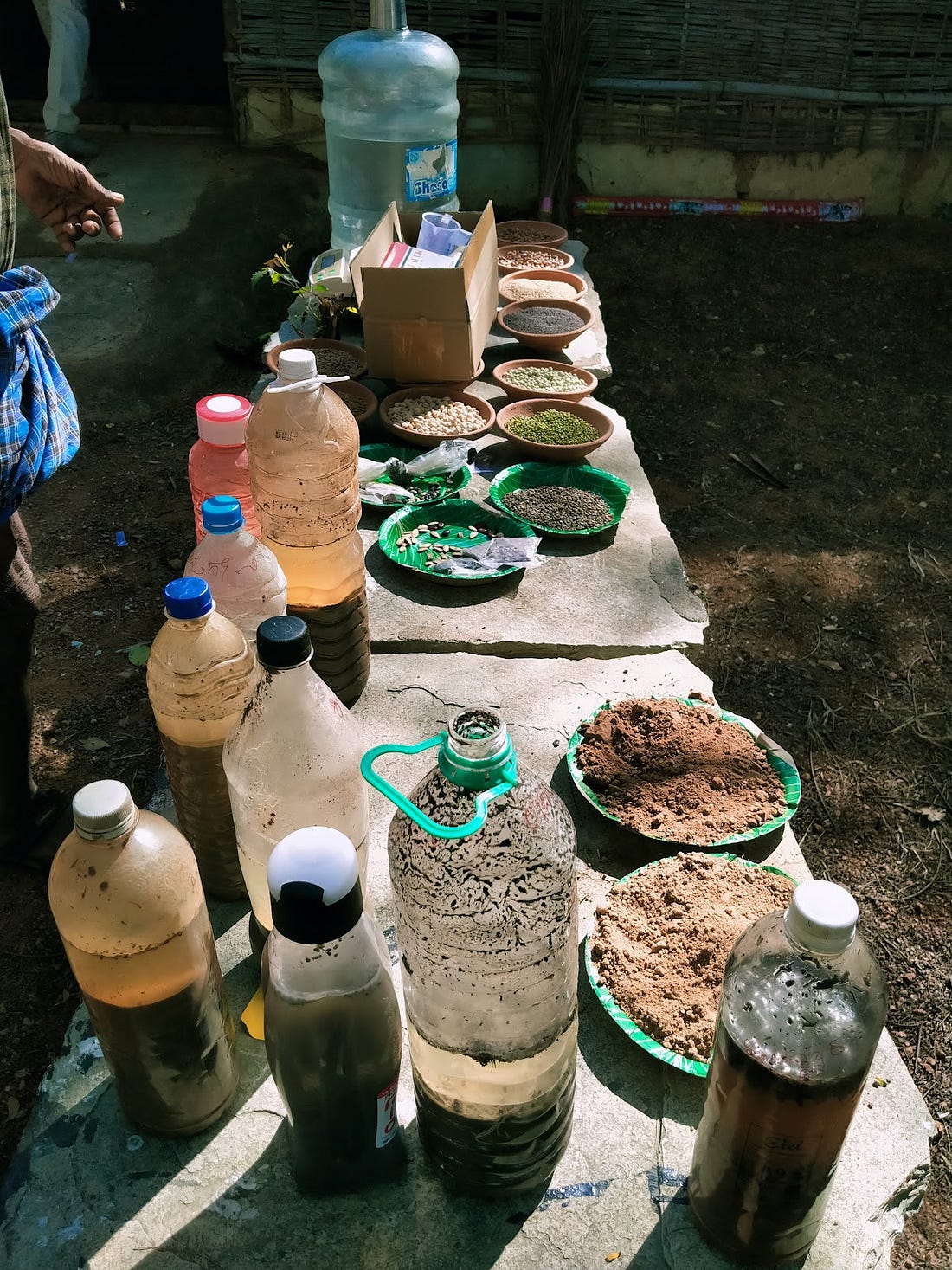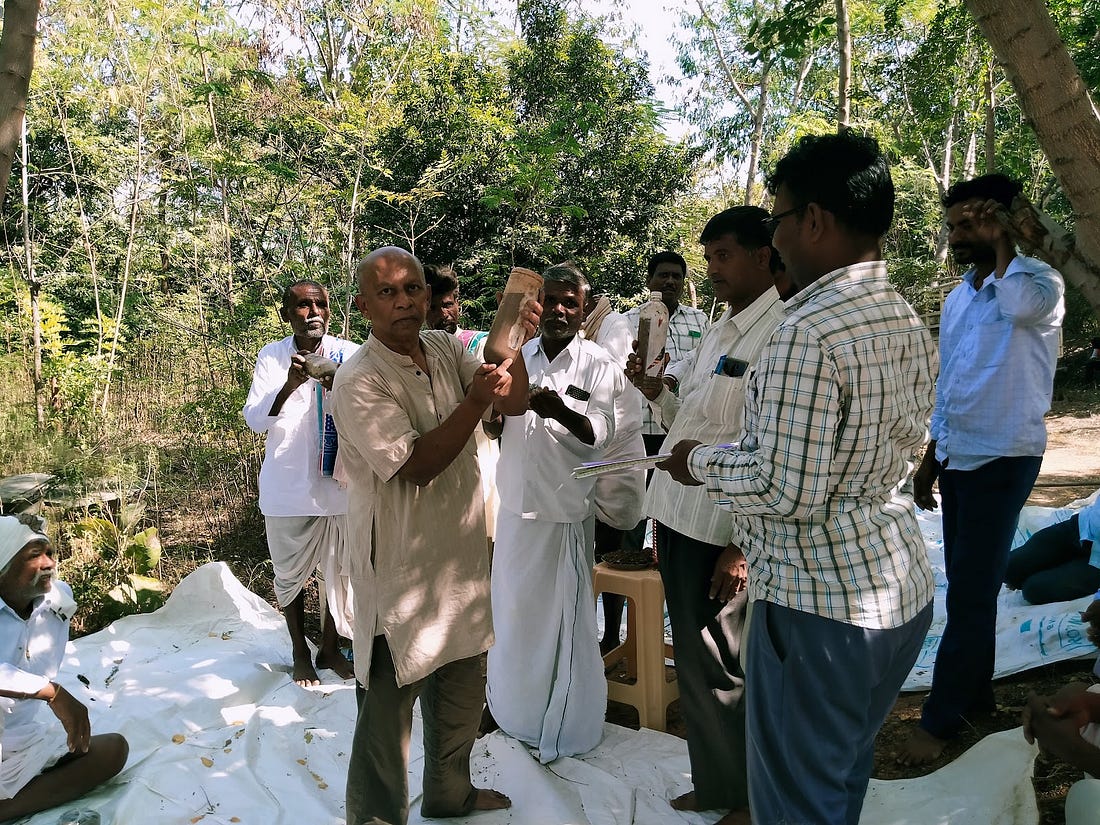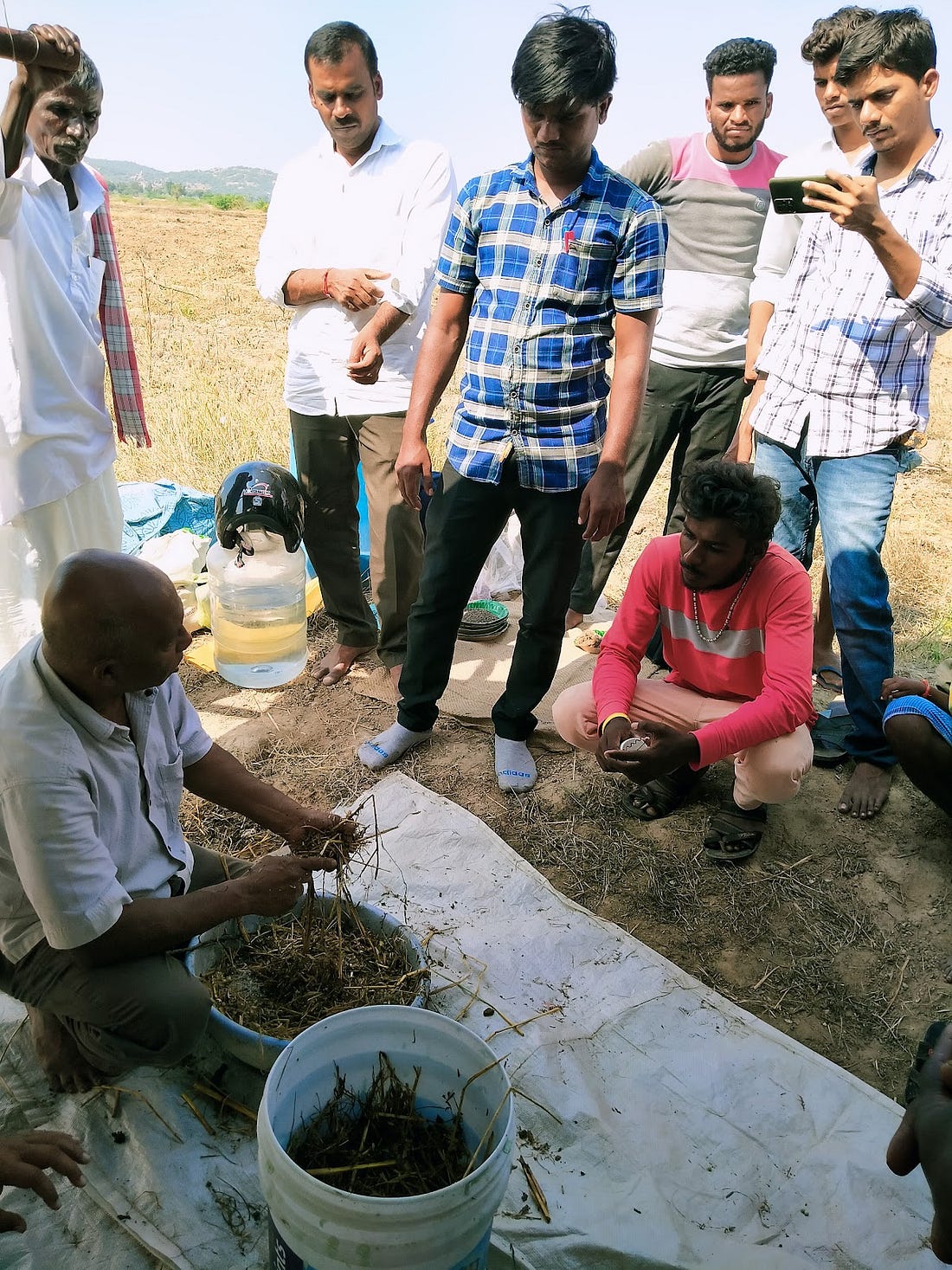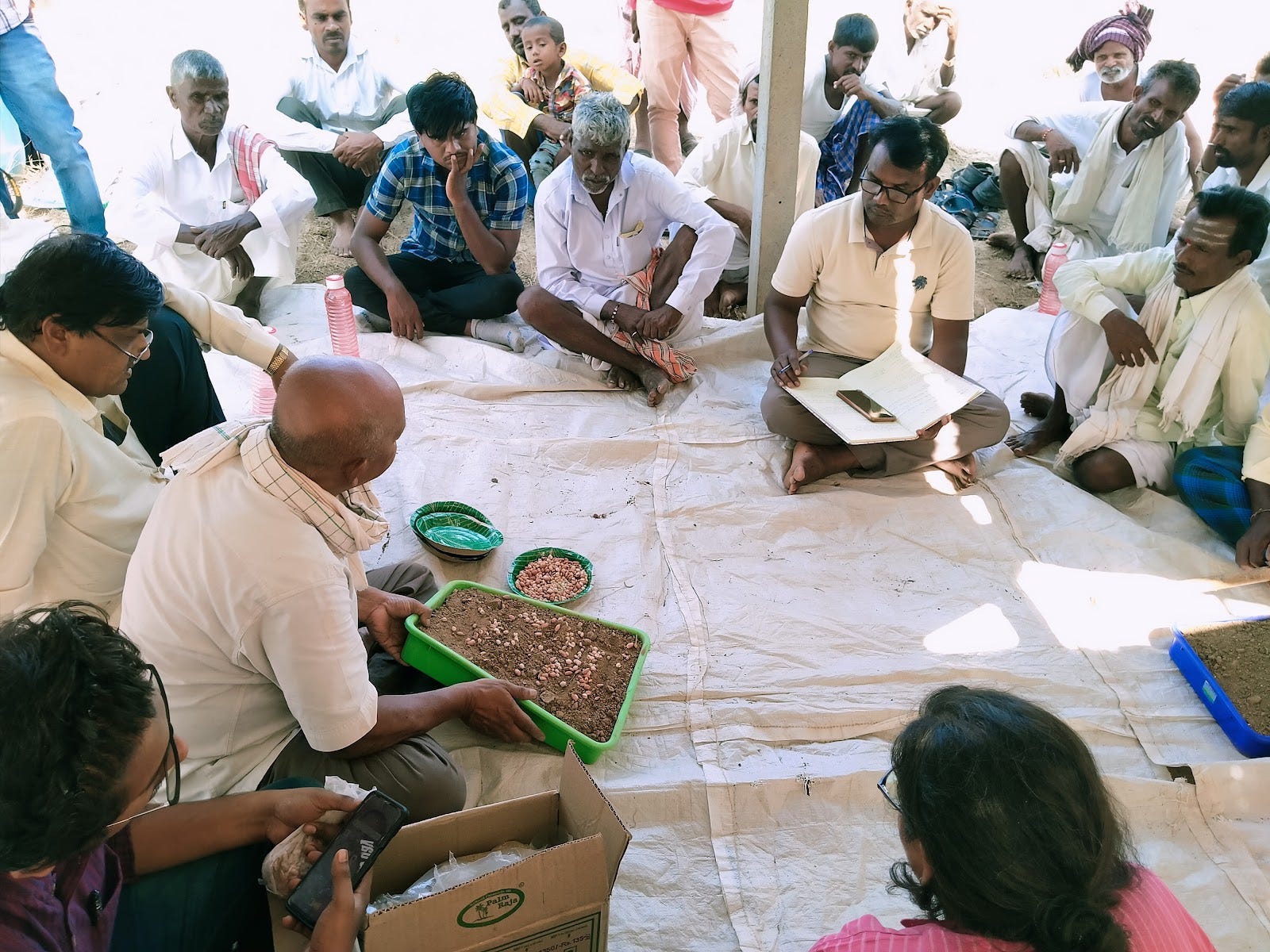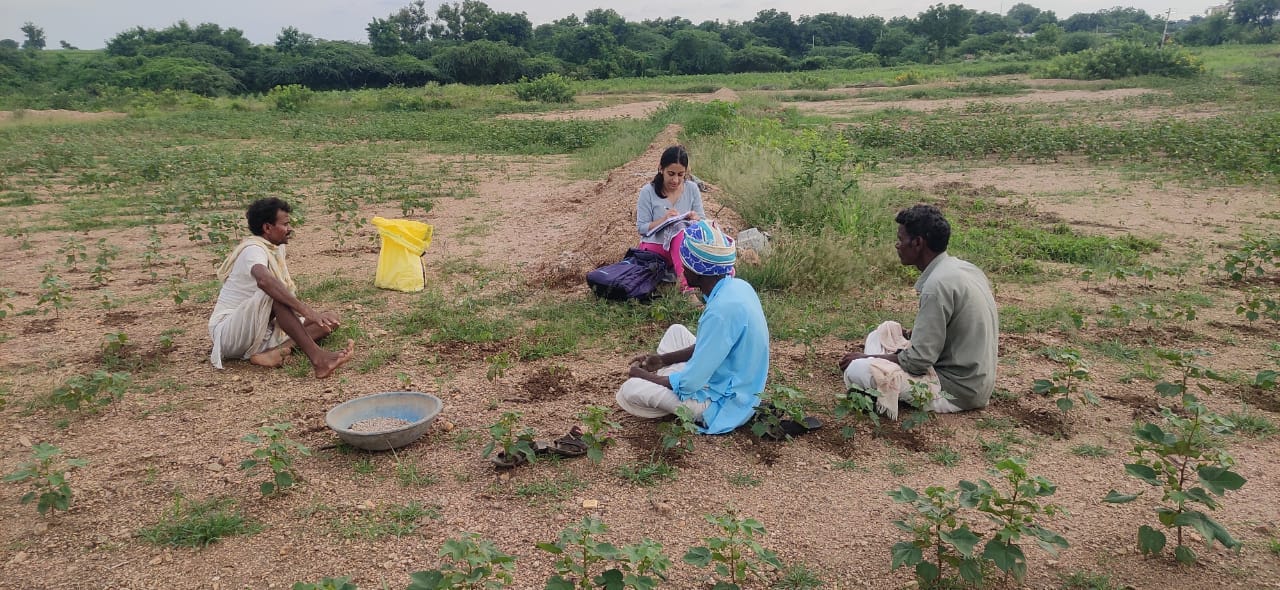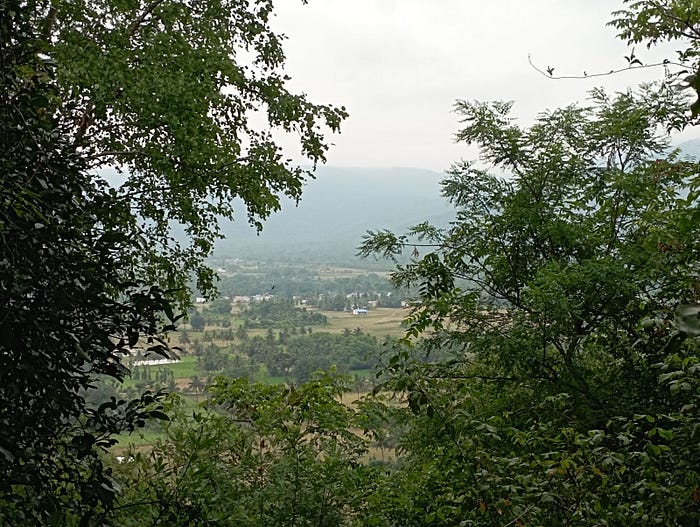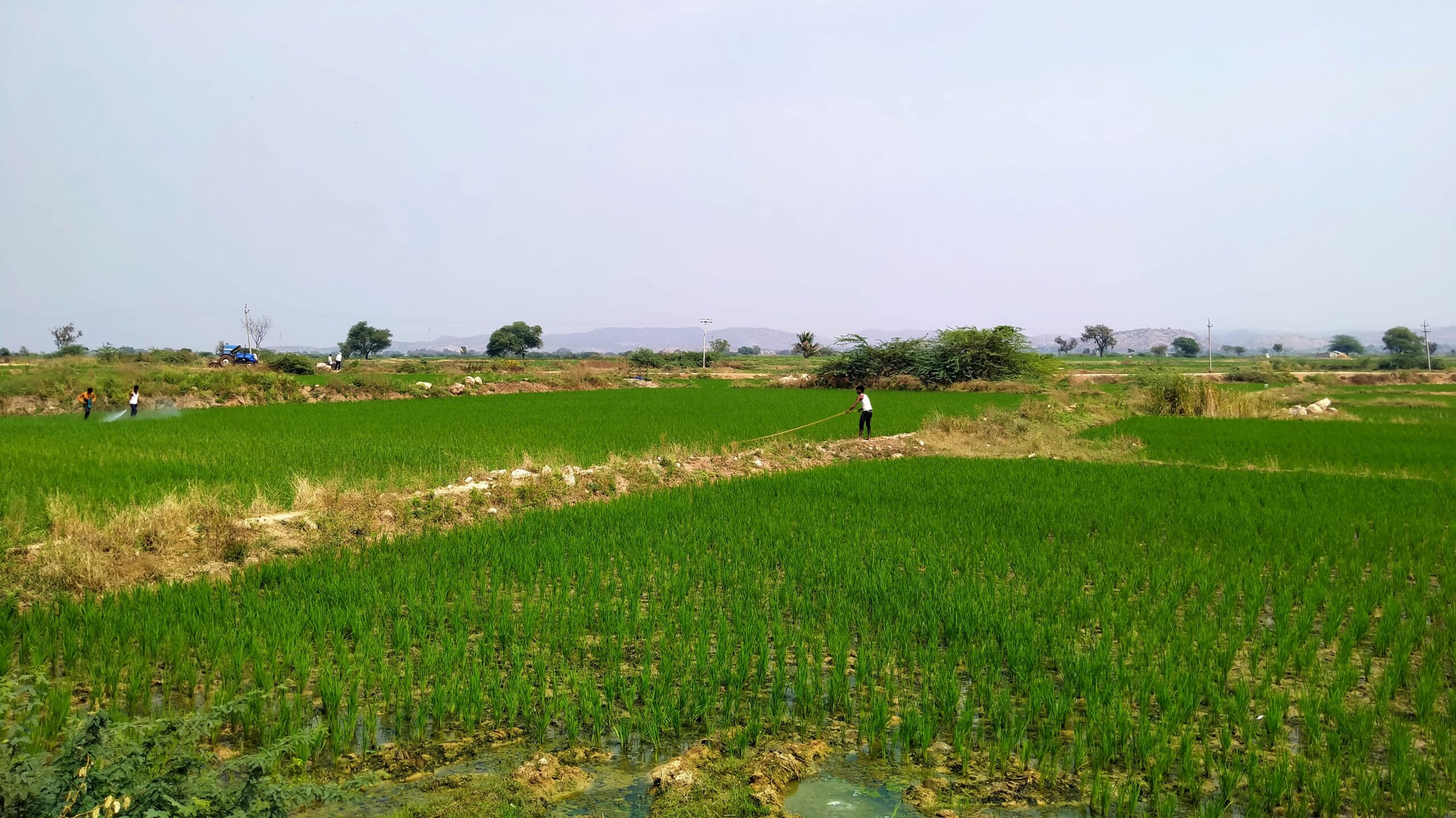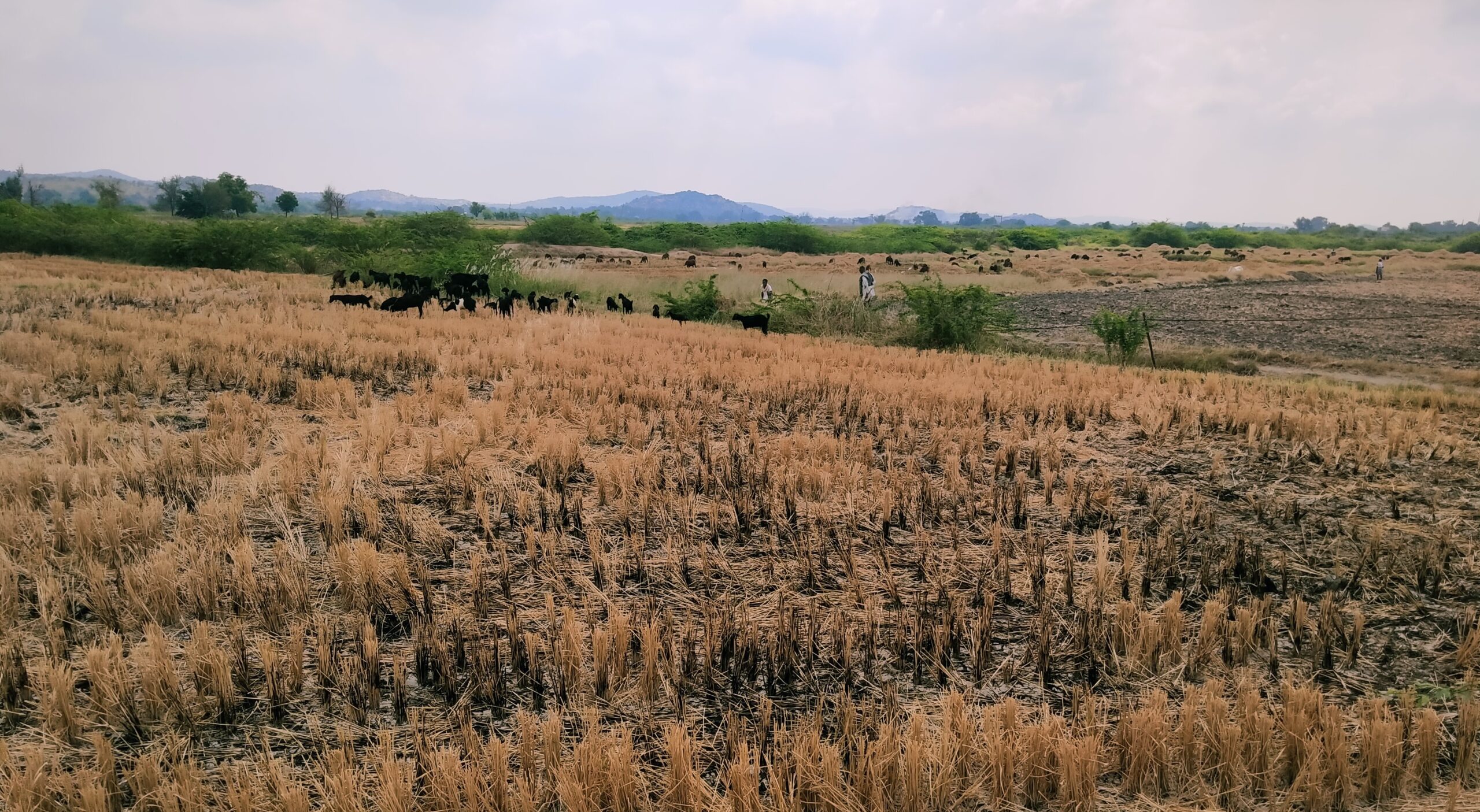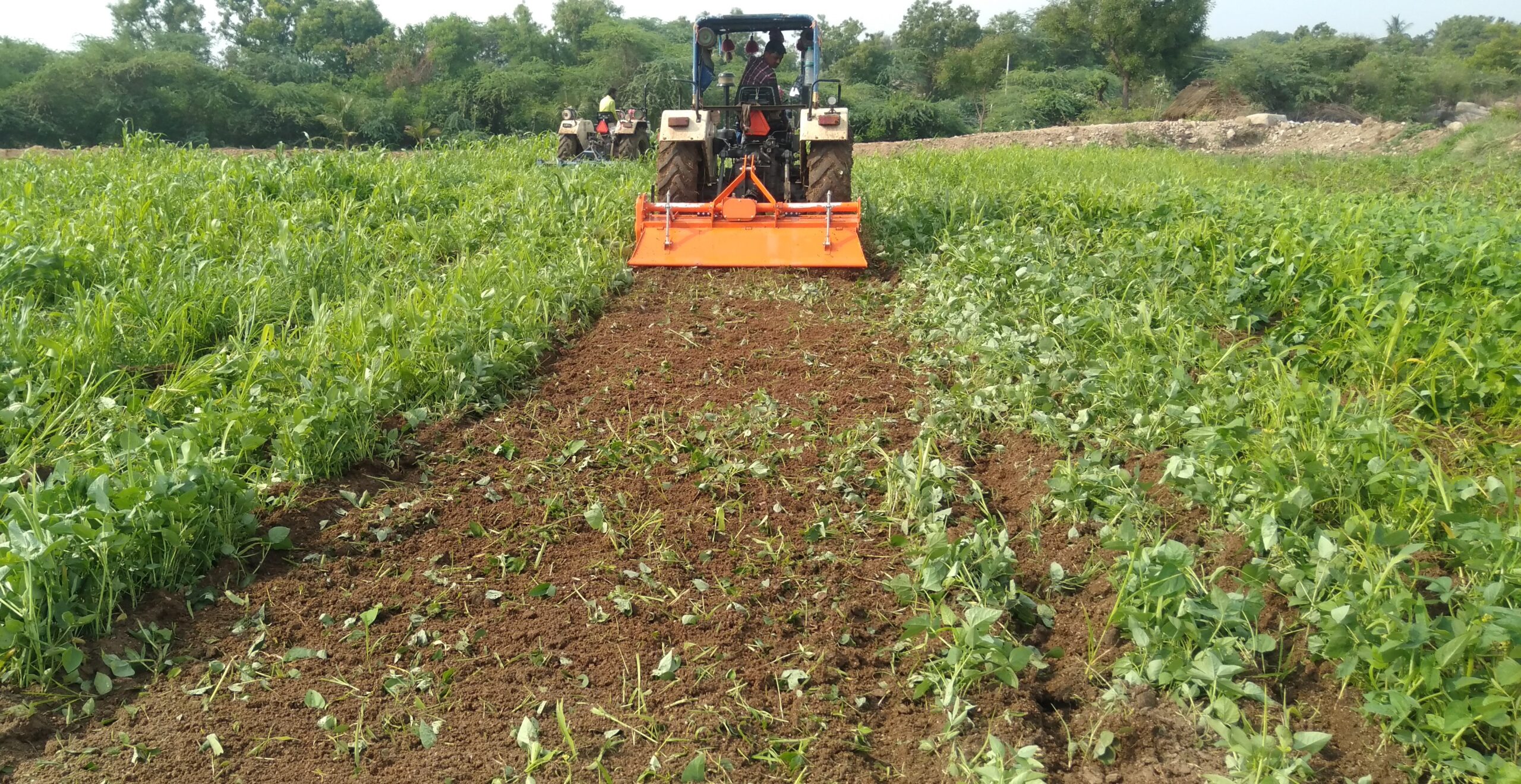Soil Workshop in Raichur: Farmers Keen on New Methods to Rebuild Soils
Shivraj (name changed) had brought a bag of earth from the land he tills, to use in a simple ‘jar test’ to assess the soil quality. He filled half a transparent plastic bottle with the soil, the rest with water, leaving a bit of air on top. After shaking it vigorously, he set it aside for a few hours to see that the soil particles had settled into different layers. The width of each layer — sand, silt, clay and organic material — sheds light on how healthy, and thus cultivable, the land is. It’s a simple experiment; all a farmer needs is an old plastic bottle and water to see how the soil they depend on is changing.
‘These experiments have helped me become more aware of what healthy soil should look like and the importance of rebuilding it,’ said Shivraj. He was among 35 farmers from Mukkanal village who had gathered for a two-day workshop led by P. Srinivas. ‘Soil Vasu’, as Srinivas is better known, is the founder of SOIL, a trust that focuses on promoting soil health. As land degrades and the climate changes, traditional wisdom falls short, making it necessary to address the existing gap in knowledge and capacity through field courses for farmers.
First soil quality workshop in Raichur
This was the second such workshop we helped Soil Vasu organise — the first was in Thondahalli, not far from Mulbagal town in Kolar district. This was the first in Raichur, an ‘aspirational’ district where our research on socially and ecologically-responsible restoration is focused. We joined hands with our partner, Prarambha, an NGO based in northern Karnataka that has 33 years of experience working with rural communities, to organise this event.
Read: The ‘Ground Truth’: Understanding Land Degradation in Raichur
These workshops follow a largely similar course structure created by Soil Vasu, based on his years of experience working with farming communities in semi-arid Karnataka. We realised that while the broad lesson plan works across regions, it is necessary to weave in the local context and speak directly to what farmers here need — most of them with small landholdings less than two acres, dependent on rainfed agriculture and grappling with severe soil degradation. Since Prarambha has been involved in rural development work in the region for years, they co-designed this workshop with Vasu. Their inputs on preventing soil erosion and crop residue management was pivotal in making this workshop more useful for farmers.
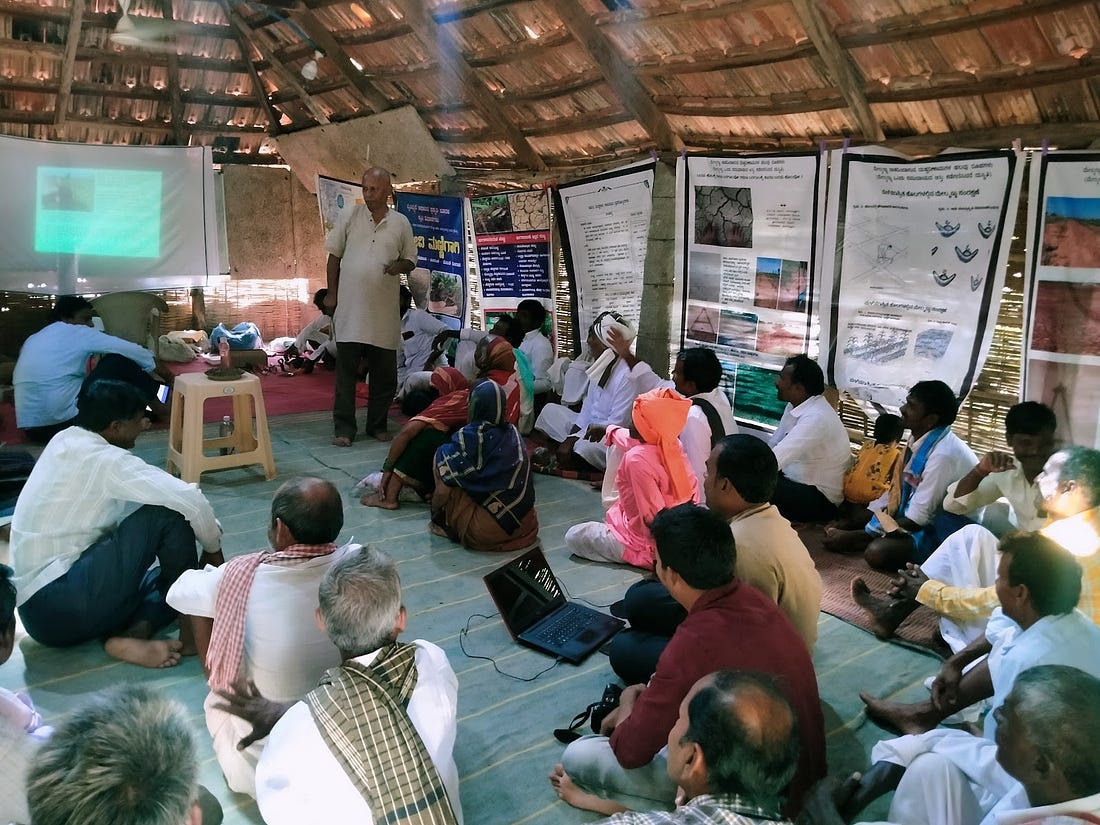
Vasu began with wide-ranging discussions with farmers about how soil health is integral not only for productive farms but also for food and nutritional security; he pointed out that many children in Devadurga taluk, where the workshop was held, suffer from malnutrition.
‘If the soil is healthy, the crop will be healthy and those who consume it would also be healthy,’ Soil Vasu said, going on to explain how the excessive use of fertilisers is harmful to soil biodiversity and must be replaced with sustainable and cost-effective methods that make use of locally-available resources.
Few farmers agreed to stop burning stubble
The second day was spent outdoors with Soil Vasu demonstrating how to prepare green leaf manure and making compost from crop residue that farmers routinely set on fire to prepare the land for cultivation. They resort to burning stubble left over from the harvest of kharif season crops because processing this ‘waste’ into manure is labour intensive. But this comes at a cost because it depletes the top soil of moisture and microbes, affecting its fertility.
This conversation was fruitful because four farmers volunteered to stop burning crop residue.
They want to try and turn this biomass into mulch and reapply to their fields. This way, the soil’s biological and structural integrity is retained, allowing it to hold more water and organic matter. This is a small number but it nevertheless was a step forward as these are long-held habits and practices that farmers, especially those with small landholdings, are reluctant to risk changing.
Contouring the land to hold water better
Soil moisture and water flows are critical parts of the equation to improve productivity of farm plots. Prarambha has been actively involved in this work as a result of which some panchayats in Devadurga have begun to dig trenches, thus improving water-holding capacities and soil moisture levels, and enriching local biodiversity. Trench-cum bunds (TCB) or earthen embankments help conserve rainwater, recharge water tables, preserve soil moisture, reduce erosion and provide the space required for in-situ composting.
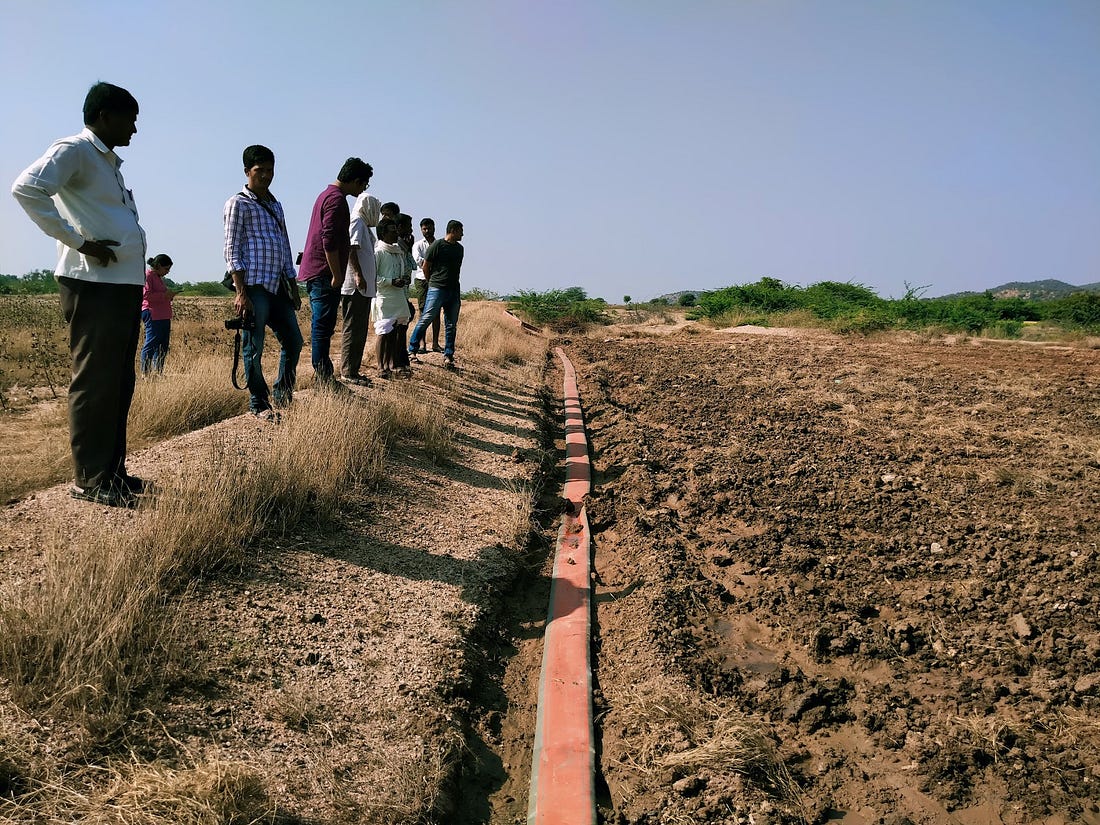
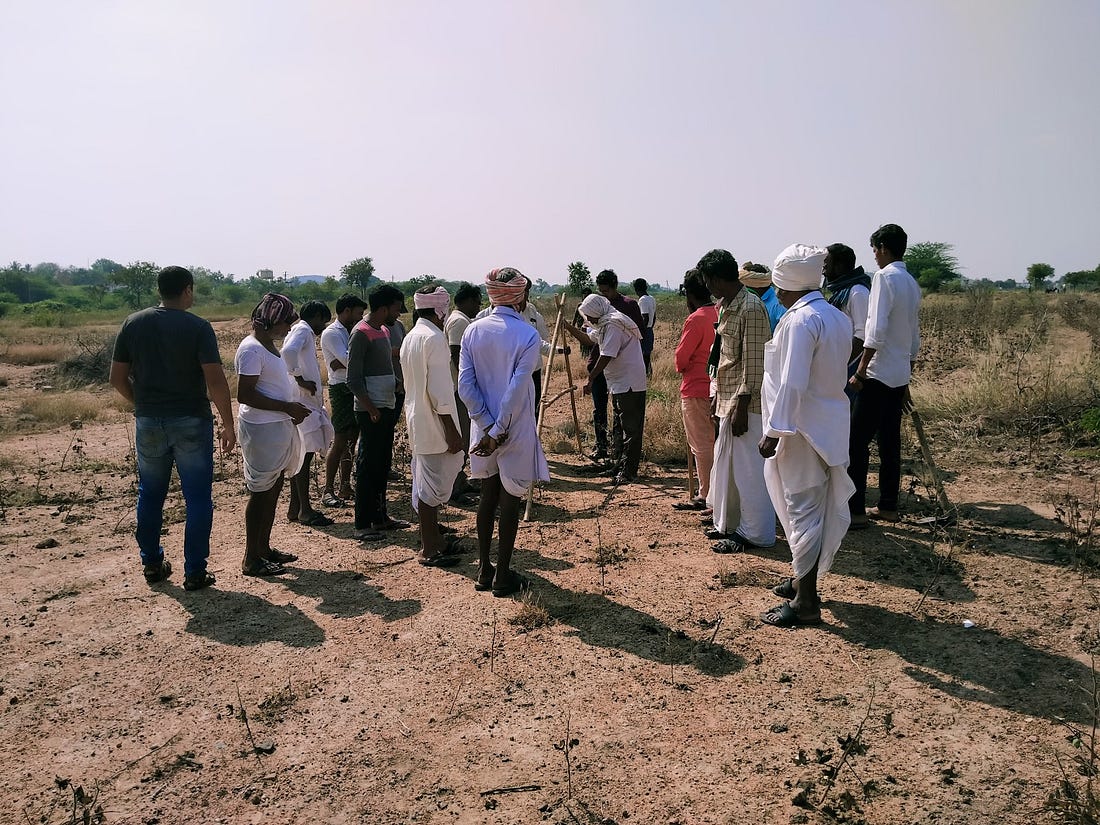
Despite these benefits, some farmers voiced their concerns about such activities — aren’t they having to sacrifice a chunk of land to dig trenches instead of using it to sow seeds, harvest more and thus earn better? We sought to convey to the farmers that while their first harvest might dip, such a method would lead to an overall improvement in soil quality, and thereby yield, trumping what they would’ve gotten had they not installed embankments. Failing to stem surface run-off from rain can wash away the fertile topsoil, leaving gravel and sand that cannot support growth. Erosion is one of the primary drivers of land degradation.
Akkadi Saalu and diversifying farm plots
We saw the same kind of hesitance among farmers when we broached the subject of diversifying what they grow. This is a region where cotton is the dominant cash crop and the idea of moving from a purely cotton field to also include, for instance, fodder crops that can be used to prepare green manure, is a hard sell.
Read: Is agroecological farming a solution for rainfed degraded land?
But many of these are farmers who are desperate for alternatives as their land and soil quality has degraded at alarming rates. Low yield of cotton could make way for better harvests of crops such as millets, which are not water intensive, or fodder that can be used for livestock and mulched back into the soil. Multicropping gives farmers with smaller landholdings more security. There is less risk of losing all crops at once.
Restoring degraded soils is complex work. This two-day workshop in one location threw up so many insights, underlining that farmers need to be supported on multiple fronts — from crop residue management and water conservation methods to diversifying the entire farm. Our engagement with these farmers also showed how diverse the problems are from one plot to another.
We hope to take these lessons forward to other villages in Karnataka to stem the process of degradation and empower farmers to diagnose and take action. As Soil Vasu said: ‘Farmers can become the soil scientists of their own land and take the lead on rebuilding soil health’.
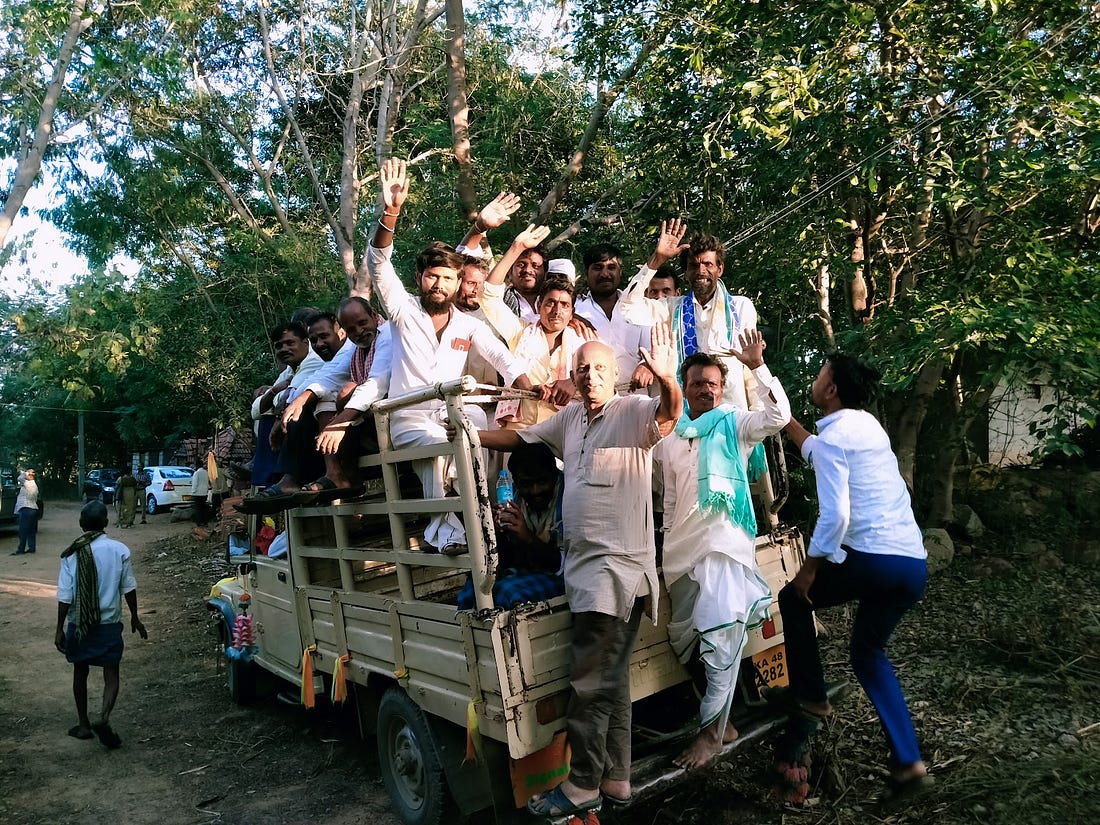
Credits
Acknowledgement: With inputs from Prarambha and Soil Vasu who organised this workshop.
The authors conducted this work when they were with the Centre for Social and Environmental Innovation at the Ashoka Trust for Research in Ecology and the Environment (CSEI-ATREE). WELL Labs is now taking it forward in collaboration with ATREE.
Edited by Kaavya Kumar
If you would like to collaborate with us outside of this project or position, write to us. We would love to hear from you.
Follow us and stay updated about our work:

